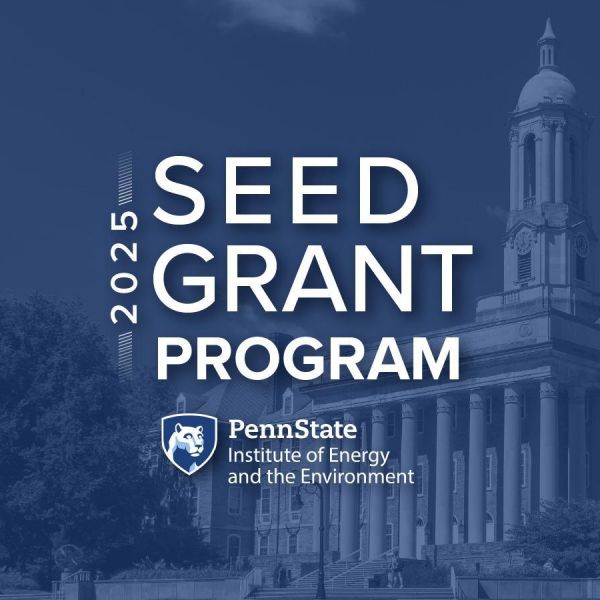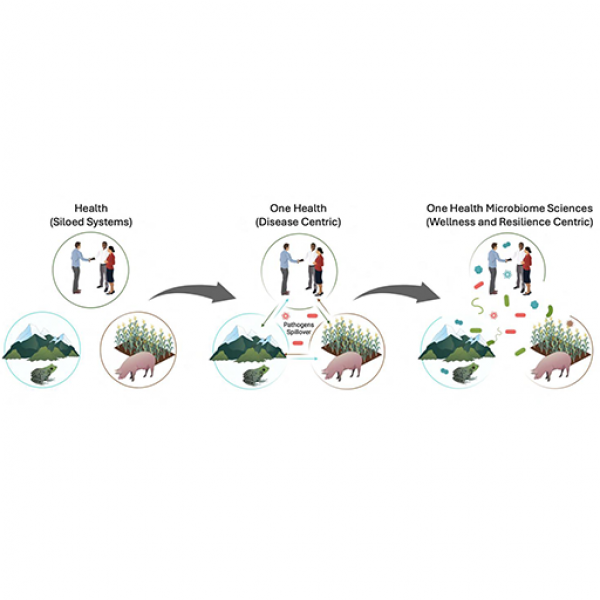News

Jun 25, 2025
Nutritional sciences faculty receive national recognition for research
Three Penn State Department of Nutritional Sciences faculty members were recently recognized for their research contributions to the field with prestigious awards by the American Society for Nutrition (ASN).
Full Article

Jun 30, 2025
Huck announces 2025-26 Leadership Fellows
Three faculty members, representing three different Penn State colleges, have been named Huck Leadership Fellows for the 2025-26 academic year.
Full Article

Jun 24, 2025
Ten interdisciplinary research teams awarded IEE seed grants
Ten interdisciplinary research teams have received funding through the Institute of Energy and the Environment’s (IEE) 2025 Seed Grant Program.
Full Article

Jun 16, 2025
Eight Penn State research commercialization projects awarded GAP funding
Eight research projects have been selected for support from the Penn State Commercialization GAP Fund. The GAP Fund is a competitive internal program designed to help promising technologies bridge the gap between academic research and industry adoption.
Full Article

Jun 11, 2025
Q&A: Unifying the microbiome sciences for global health and sustainability
Recently, members of Penn State's One Health Microbiome Center published an article in the American Society for Microbiology’s flagship journal, mBio. In this Q&A, a few of the paper’s authors discussed how the center is leading the charge to breakdown traditional disciplinary silos and expand the One Health focus to include more than just pathogenic microbial threats.
Full Article

Jun 09, 2025
Two Penn State doctoral students selected for industry internship in Germany
The One Health Microbiome Center (OHMC) in the Huck Institutes of the Life Sciences at Penn State is sending two doctoral students to Hilden, Germany, for a seven-week industry internship at the headquarters of QIAGEN, a global leader in biotechnology for life sciences diagnostics, equipment and research.
Full Article

Jun 04, 2025
$2.9M grant funds study on long-term effects adolescent binge drinking
An interdisciplinary team of researchers at Penn State will use a new five-year, $2,900,000 grant to investigate the long-term effects of excess alcohol drinking during adolescence.
Full Article

Jun 02, 2025
Huck opens search for Associate Director for Graduate Education
The Huck Institutes of the Life Sciences is seeking an innovative Penn State faculty member with a strong background in interdisciplinary life sciences research and a passion for teaching and mentoring graduate students to join our Huck leadership team as an Associate Director for Graduate Education.
Full Article

Jun 03, 2025
Penn State’s Youth Food Lab attends UN Science, Technology, Innovation forum
Penn State’s College of Agricultural Sciences was represented on the global stage as faculty and students participated in the United Nations’ 10th Multi-stakeholder Forum on Science, Technology and Innovation for the Sustainable Development Goals, held at U.N. headquarters in New York City earlier this month.
Full Article

May 29, 2025
Biology professor, Huck associate operations director to retire
After a decade of service to the Huck Institutes of the Life Sciences and a distinguished academic career spanning four decades, James Marden, professor of biology and associate director of operations, will retire from Penn State at the end of June.
Full Article